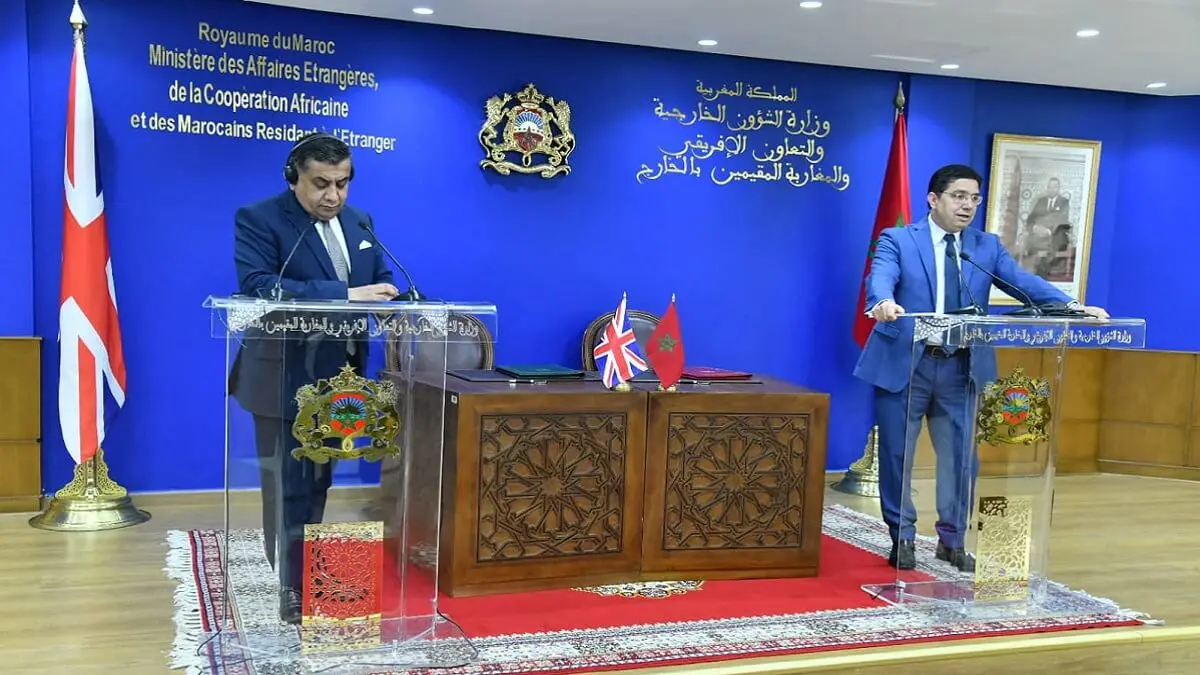Morocco reaches a strategic cooperation agreement with the United Kingdom

Since announcing its exit from the European Union, the United Kingdom has continued to work on improving its relations with Morocco, first with a trade pact in 2019, which established that Sahrawi products would have the same conditions of access to the British market as Moroccan ones, and now with a strategic cooperation agreement in different sectors after four sessions of Strategic Dialogue.
In the midst of these strategic dialogues, the UK has recognised Morocco's efforts to reach a resolution of the Sahara conflict and has declared that it will 'participate in the UN's efforts to achieve a just, lasting and stable solution', after a UK delegation travelled to the city of Laayoune to understand the situation. It also supported Morocco's autonomy plan presented in 2007, whereby the inhabitants of the Sahara would be under the sovereignty of the Alawi kingdom, respecting the cultural identity of the Saharawis and managing their own affairs.
The Western Sahara region would be autonomous, i.e. it would have a head of government and a parliament that votes on local laws, democratically managing its affairs through legislative, executive and judicial bodies with exclusive powers, as national security and foreign relations would be administered by Morocco.
Point de presse conjoint entre M. Nasser Bourita et le ministre d'Etat britannique en charge du Moyen-Orient, de l’Afrique du Nord, de l’Asie du Sud et des Nations Unies @tariqahmadbt à l'issue des travaux de la 4ème session du Dialogue stratégique 🇲🇦 - 🇬🇧. pic.twitter.com/j9uJnfURHw
— Maroc Diplomatie 🇲🇦 (@MarocDiplomatie) May 9, 2023
Morocco's desire to boost its renewable energy and the UK's support for Morocco's sustainable development plan has resulted in this signing, between the UK Minister of State for the Middle East and North Africa, Lord Tariq Ahmad, and Morocco's Minister of Foreign Affairs, Nasser Bourita.
The agreement will boost bilateral relations between the two Kingdoms through economic, political and diplomatic cooperation; security cooperation; and cultural and educational cooperation. In tourism, flights between the two countries have increased and recovered the number of tourists they had before the COVID-19 pandemic. On the other hand, at the educational level, the demand to study in Anglo-Saxon universities has made English the second language among young Moroccans. Bilateral cooperation is expected to be even greater in the near future, as the UK ambassador to Morocco says, because of the close ties between the two kingdoms due to the good relationship between King Charles III and King Mohammed VI.
The truth is that trade relations between the two countries have experienced an increase, especially in the automotive, agricultural and renewable energy sectors, arousing great interest on the part of Moroccan companies in moving to the UK, following the numerous investments being made by the two states and the 50% increase in exports to the UK. For their part, British interest has focused on the Xlinks electricity project, an undersea cable that will pass through Portugal, Spain and France, to connect Moroccan green renewable energy to the UK grid, supplying 8% of the UK's annual electricity needs.








